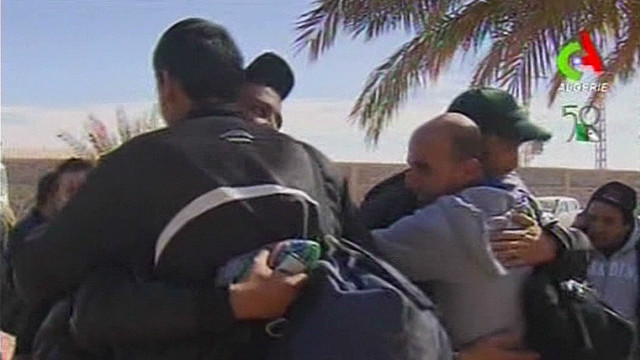
The Algerian military operation to end a deadly hostage crisis at a remote gas plant in Algeria is over, British and Norwegian
officials said Saturday.
Defence Secretary Philip Hammond said they were still waiting for full details.
"The loss of life as a result of the attacks is appalling and unacceptable. We must be clear that it is the terrorists that bear full responsibility for it," Hammond said.
Svein Michelsen, spokesman for Norway's Ministry of Foreign Affairs, said his country had confirmation the military offensive was over but gave no details.
Norway's Statoil is the joint owner of the huge gas plant overrun by militants Wednesday.
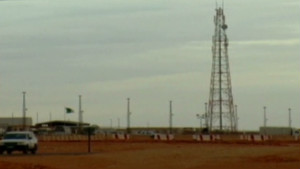
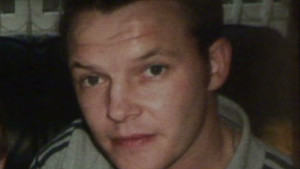
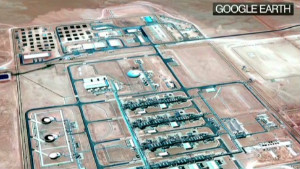
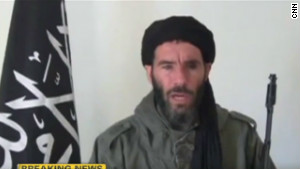
The announcement came on the heels of Algerian state media reports that seven hostages and 11 militants had been killed in what was described as a "final" assault to dislodge the terrorist group.
The Algerian Radio report did not specify the nationalities of those killed. CNN is unable to verify the state media figures on the deaths.
The total number of hostages killed or injured remains unclear.
State media said Friday that 30 or more foreigners were unaccounted for.
Survivors who've made their way to freedom have described harrowing escapes from the terror group. Some rigged up disguises, others sneaked to safety with locals, and at least one ran for his life with plastic explosives strapped around his neck.
Algeria has faced questions over its decision Thursday to stage a military offensive at the site -- a move some nations criticized as endangering the lives of the hostages.
On Saturday, Algerian state TV said special forces had had to move in because the terrorists wanted to flee the site with the hostages.
The group was planning to take the captives to neighboring Mali to put pressure on France and other nations who have intervened there at Mali's request to halt an advance by militant Islamists, the channel said.
The militants also planned to blow up the gas installation, state TV said. Operations there have been halted to prevent an explosion.
Conflicting accounts add to the confusion over the numbers and nationalities still missing as the Algerian military continues its search for militants and potential hostages across the vast complex.
Norway's Statoil, one of the firms operating the In Amenas gas plant, said two more of its workers had been freed earlier Saturday, making 11 brought to safety in total. However, six were still unaccounted for.
"All of those involved have experienced extreme stress," Statoil said, adding that it was doing all it could to support workers and their families caught up in "an unimaginable tragedy."
British Foreign Secretary William Hague said Saturday that fewer than 10 British nationals are currently at risk or still unaccounted for, far fewer than initially feared.
"But that of course means that we must continue to prepare ourselves for bad news," he added.
The British ambassador to Algeria and a consular team are now on the ground near the gas plant.
"This whole incident underlines the scale and ruthlessness of the terrorist threat that we and other nations face," Hague said. "We underline our resolve to deal with that and to defeat such terrorism and murder working with allies across the world and including in North Africa."
There are no more French hostages at the plant as far as French authorities can tell, Defense Minister Jean-Yves Le Drian said Saturday.
One French national was killed, but three others who were at the site are safe, the Foreign Ministry said a day earlier. The man who died, identified as Yann Desjeux, had spoken to the French newspaper Sud Ouest from the plant Thursday. He was quoted as saying he and 34 other hostages of nine different nationalities were being well treated.
At least one American, identified as Frederick Buttaccio, is also among the dead, U.S. State Department spokeswoman Victoria Nuland said.
As of Friday, six Americans were freed or escaped, a U.S. official said. The official provided no other information about their status or whereabouts. Other Americans were unaccounted for.
One Romanian has also lost his life, a spokeswoman for the Romanian Ministry of Foreign Affairs told CNN on Saturday. Four other Romanians were freed from the kidnappers.
There are also 14 Japanese unaccounted for, Chief Cabinet Secretary Yoshihide Suga said. And Malaysia's state-run news agency reported Thursday that two of its citizens were held captive.
BP said Friday that a "small number of BP employees" were unaccounted for.
It was not clear how many hostages were seized by the Islamist militants and how many were being held. Thursday's military operation ended with 650 hostages -- including 100 foreigners -- freed, while at least 12 Algerian and foreign workers were killed, APS reported in what it said was a "provisional toll."
In addition, 18 of the attackers were "neutralized," APS said.
A spokesman for Moktar Belmoktar, a longtime jihadist who leads the Brigade of the Masked Ones -- a militant group associated with al Qaeda in the Islamic Maghreb -- reportedly offered to free U.S. hostages in exchange for two prisoners.
The prisoners are Sheikh Omar Abdel Rahman, who orchestrated the 1993 World Trade Center bombing, and Aafia Siddiqui, a Pakistani woman jailed in the United States on terrorism charges, the spokesman said in an interview with a private Mauritanian news agency.
Asked Friday about the offer, Nuland rejected it, restating U.S. policy of not negotiating with terrorists.
A dangerous escape
The crisis began when the militants targeted the gas field, which is jointly run by Algeria's state oil company, Statoil and Britain's BP.
At the start of the siege, the militants gathered the Westerners into a group and tied them up, survivors said.
The kidnappers were equipped with AK-47 rifles and put explosive-laden vests on some hostages, a U.S. State Department official said.
Some escaped by disguising themselves, according to Regis Arnoux, who runs a catering firm at the site and had spoken with some of his 150 employees who were freed. He said they were all traumatized.
Some Algerian hostages were free to walk around the site but not to leave, Arnoux said. Still, a number of them escaped, he said.
As the Algerian military launched its operation Thursday, the militants moved some hostages, according to one survivor's account.
With plastic explosives strapped around their necks, these captives were blindfolded and gagged before being loaded into five Jeeps, according to the brother of former hostage Stephen McFaul.
McFaul, with the explosives still around his neck, escaped after the vehicle he was in -- one of several targeted by Algerian fighters -- crashed, his brother said from Belfast, Northern Ireland.
"I haven't seen my mother move as fast in all my life, and my mother smile as much, hugging each other," Brian McFaul said upon his family hearing his brother was safe. "... You couldn't describe the feeling."
McFaul said the other four Jeeps were "wiped out" in an explosion, and his brother believed the hostages inside did not survive.
Nations mobilize to help citizens caught up in crisis
A U.S. official confirmed that a U.S. military plane took off overnight from Algeria with 10 passengers on board. The official would not elaborate and did not have a breakdown on their identities.
Norwegian authorities have also sent aircraft to Algeria to help with the evacuation of freed hostages, Statoil said.
Both BP and Statoil were pulling their personnel out of Algeria, Africa's largest natural gas producer and a major supplier of natural gas to Europe.
Algeria faces tough questions from governments of the kidnapped nationals over its handling of the crisis. Neither the United States nor Britain, for instance, was told in advance about Algeria's military operation Thursday.
Nations with citizens involved had issued a plea to the Algerians, urging them to be cautious and make the hostages' safety their priority.
Belmoktar, the man behind the group claiming responsibility for the attack and kidnappings, is known for seizing hostages.
French counterterrorism forces have long targeted Belmoktar, an Algerian who lost an eye fighting in Afghanistan in his teens.
The militants said they carried out the operation because Algeria allowed French forces to use its airspace in attacking Islamist militants in Mali.
CNN's Barbara Starr, per Nyberg, Dan Rivers, Greg Botelho, Tricia Escobedo, Mike Mount, Joe Sutton, Elwyn Lopez, Frederik Pleitgen, Mitra Mobasherat, Saskya Vandoorne, Laura Perez Maestro, Junko Ogura, Dheepthi Namasivayam, Saad Abedine, Elise Labott and Tim Lister contributed to this report, as did journalists Peter Taggart from Belfast and Said Ben Ali from Algiers.
No comments:
Post a Comment